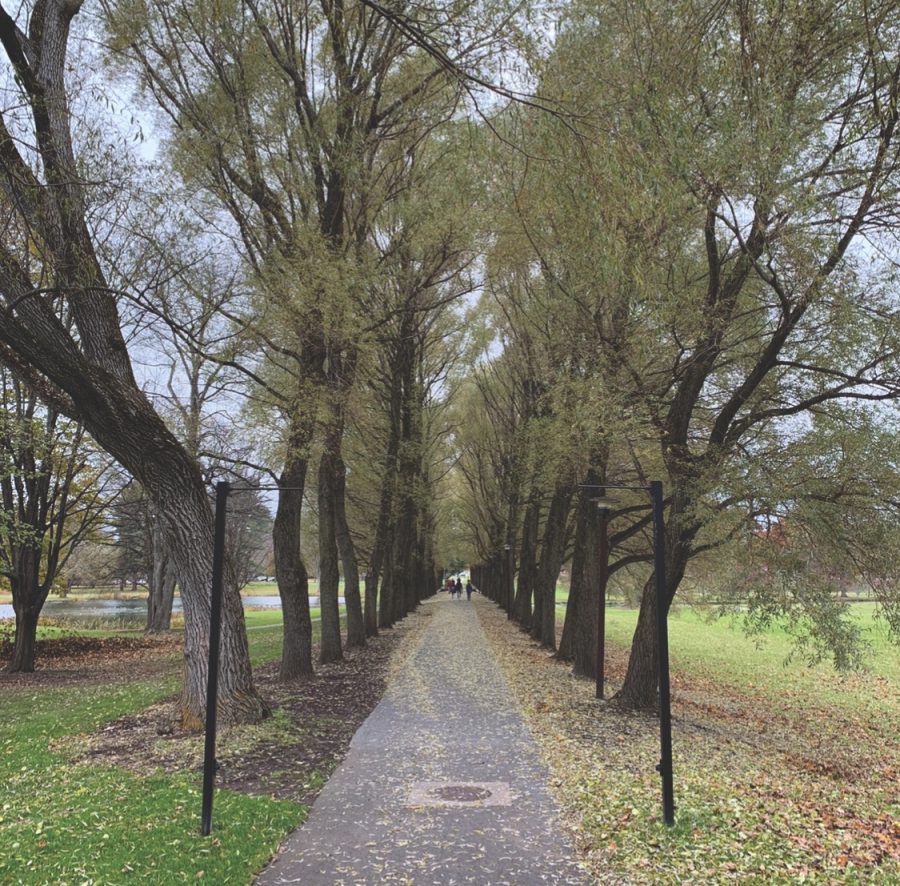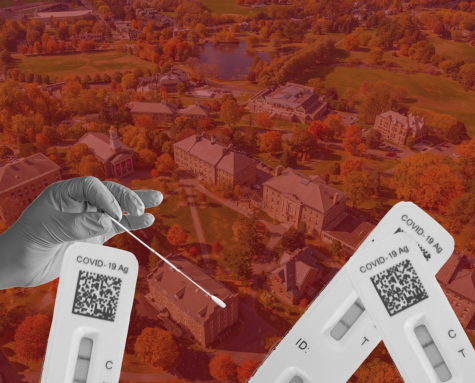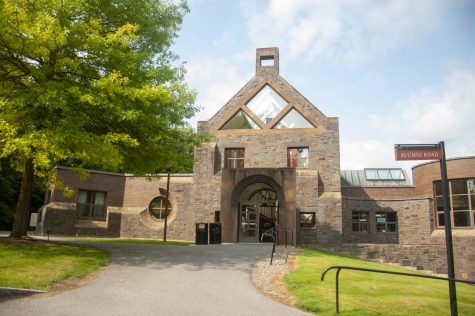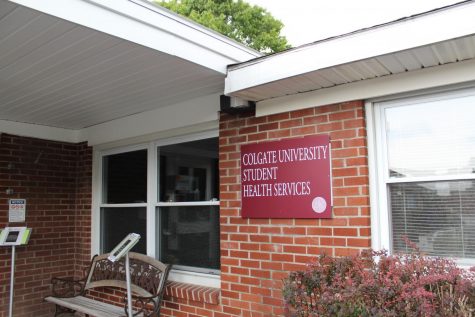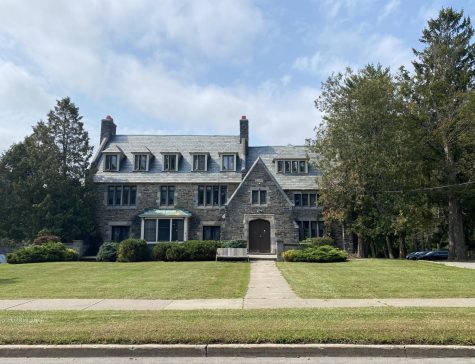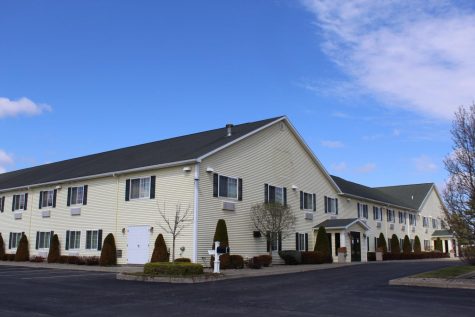Concerns Arise Over Commitment Violations During Halloween Weekend
Amid fears that Halloween gatherings might cause surges in the transmission of the novel coronavirus, university leaders urged students to attend events organized by the Residential Commons and the Colgate Activities Board. Their suggestion came amid reports of 29 active coronavirus cases in Madison County and one active employee case, with infection rates rising in several nearby counties. Despite their message, communicated through the Colgate Digest on Wednesday, Oct. 28, the University saw the number of Commitment to Community Health (Commitment) violations change from green to orange over the holiday weekend.
“We are aware of a number of large gatherings that occurred over the weekend, and we have concern over potential visitors. This is very unnerving and potentially very dangerous for us all,” President Brian Casey said in his daily video update on Nov. 2, posted to Youtube.
The comment came alongside the University’s decision to move forward with Gate 4 on Tuesday, Nov. 3. According to Casey, the University felt confident in their decision after health metrics remained consistently low for two weeks. Of the 300 test results reported during the week of Oct. 30, no positive cases were confirmed. To address mounting concern over gathering size and unapproved visits following Halloween, the Health Analytics team recommended increasing the volume of coronavirus tests. Additional testing cost the University $90 per student.
“We were in our third cycle of zero [positive student cases], and so that was the real driver. And we also know that it’s not permanent. So we knew that we had the flexibility to go backwards if we needed to, and that’s what we were paying attention to this week with the extra testing,” Casey said.
In Gate 4, students can now meet in groups of 50 outdoors with structured movie nights and other social and physical activities. Students must wear face masks and continue to stand six feet apart. Students are also permitted to meet in groups of 50 indoors, though a limited number of spaces meet the size necessary to accommodate social distancing standards. During indoor functions, food is allowed if vetted by the Event Safety Group, created to assist staff in planning events and confirm that gatherings adhere to guidelines mandated at the state and university level.
Halloween posed a particular concern for campus leaders, falling on a Saturday. The University stationed additional Campus Safety officers across the Hamilton area to mediate the spread of coronavirus and prevent large gatherings. At the time, Gate 3 permitted groups of 25 or fewer to meet indoors or outdoors.
“It was Saturday, it was Halloween, it was a full moon, and it was the end of daylight savings which gave an extra hour to the evening. It was the perfect storm, so we had extra Campus Safety on shifts, and we knew it was a risk,” Casey said. “We also know people are stressed and tired and want relief. It would be incredibly inhumane of us not to recognize that desire to just be free of this and be free of the burdens. I feel it too.”
Though University officials recognized students’ desire to celebrate Halloween, they could not ignore the possibility of an outbreak. According to Health Analytics Team Manager Severin Flanigen, his team has seen a steady increase in the number of commitment violations on Fridays and Saturdays.
“The rise in Commitment violations can certainly have an impact on the alert level of other metrics. These violations are typically associated with large gatherings of individuals not social distancing and, at times, not wearing face masks,” Flanigen said. “If there is a positive individual in these large gatherings, the potential for transmission is very high.”
In his Nov. 2 daily update, Casey explained that various metrics might force the University to revert to an earlier Gate. The University continues to monitor Student Positive Cases, Student Quarantine and Isolations and increased alert levels within Student Health Services. Co-Chair of the Event Safety Group Cody Tipton noted that an earlier Gate inherently cuts scheduled events’ attendance limits.
However, Tipton explained that few issues have occurred during Gate 4. He remains impressed by individuals’ creativity and adherence to event guidelines.
“While there clearly have been large gatherings that haven’t been approved or reviewed, I believe that the vast majority of people organizing gatherings, particularly student organizations and Commons leaders, are following the gathering guidelines,” Tipton said. “The Event Safety Group has offered advice and recommendations, but we’ve found that most organizers are putting a lot of thought into modifications that they can make to promote health and safety well before they submit anything to the Event Safety Group.”
Junior Alex Millard echoed Tipton’s sentiments, sharing a lack of concern over any potential regression to an earlier Gate.
“I’ve definitely seen higher concentration of people gathering on Fridays and Saturdays around the townhouses,” Millard said. “However, I’m not very concerned that Colgate might move back into an earlier Gate after Commitment violations during Halloween, especially since it’s nearing the end of the semester on campus. If we do move back a gate, it won’t really affect much in my life.”
Tipton continues to see a shift towards more outdoor events, including bonfires, movie nights and other gatherings on the quads. According to Tipton, the Residential Commons and Outdoor Education have been proactive in their planning efforts, while student organizations working with Africana, Latin, Asian and Native American (ALANA) Cultural Center, Center for Leadership and Student Involvement (CLSI), the Max Shacknai Center for Outreach, Volunteerism and Education (COVE) and the Chaplain’s Office have resumed in-person meetings and activities.
“My biggest concern is finding spaces large enough for fifty people, particularly as we start moving inside due to the weather. The [Emergency Operations Center] EOC is working on some ideas to address this for the spring semester, and hopefully, we have a warm enough November to continue gathering outdoors in the meantime,” Tipton said.


